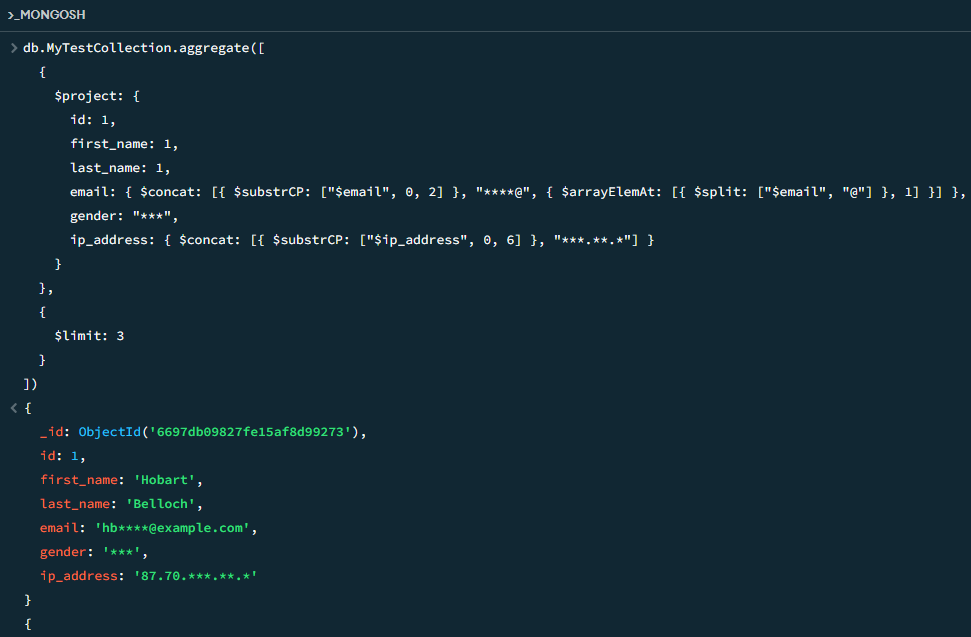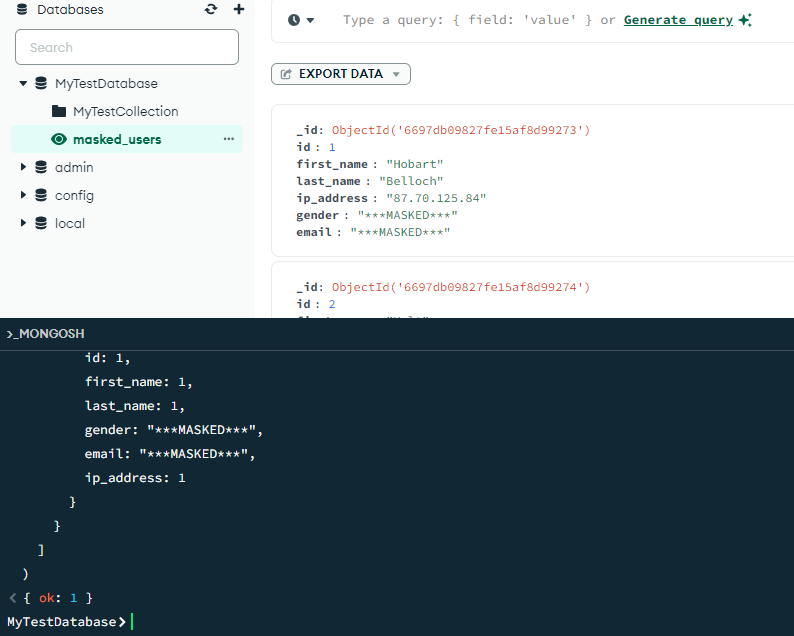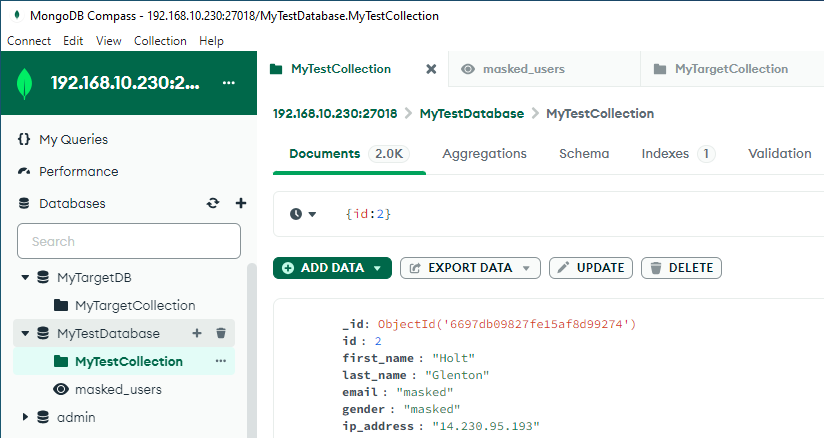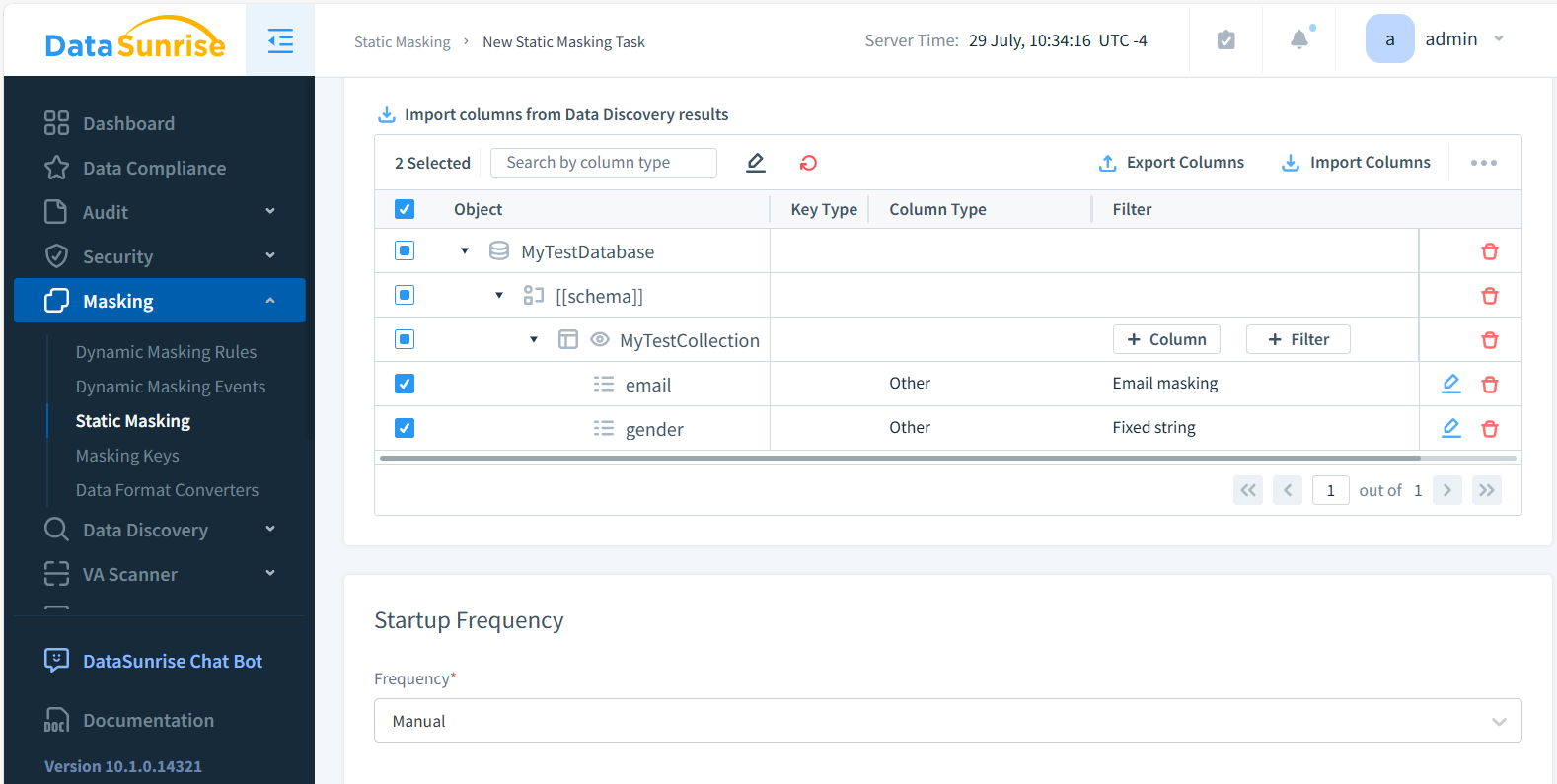
Data Masking for MongoDB

Introduction
Let’s dive into the world of data masking for MongoDB, exploring its capabilities, techniques, and tools to help you maintain data privacy and regulatory compliance.
MongoDB, a popular NoSQL database, holds vast amounts of data for many organizations. But how can we ensure this data remains secure while still being useful?
Did you know that according to a DBIR 2024 study, 15% of data breaches in the past year involved third-party? This startling statistic highlights the importance of robust data protection measures like data masking.
What is Data Masking?
Data masking is a security technique that replaces sensitive information in MongoDB with realistic but fake data. This process allows organizations to use their databases for testing, development, or analysis without exposing confidential details.
For MongoDB users, data masking is essential for:
- Protecting customer information
- Complying with regulations like GDPR and CCPA
- Securing development and testing environments
- Safely sharing data with third parties
MongoDB’s Native Data Masking Capabilities
MongoDB offers some built-in features for data masking and query masking. While not as comprehensive as third-party solutions, these native capabilities can be useful for basic security needs.
Field Level Redaction
MongoDB’s $redact operator allows you to restrict access to specific fields based on user privileges. Here’s a simple example:
db.MyTestCollection.aggregate([
{
$project: {
id: 1,
first_name: 1,
last_name: 1,
email: { $concat: [{ $substrCP: ["$email", 0, 2] }, "****@", { $arrayElemAt: [{ $split: ["$email", "@"] }, 1] }] },
gender: "***",
ip_address: { $concat: [{ $substrCP: ["$ip_address", 0, 6] }, "***.**.*"] }
}
},
{
$limit: 3
}
])This query masks all gender and email fields, effectively masking sensitive data.

Views with $project
You can create views that exclude or modify sensitive fields:
db.createView(
"masked_users",
"MyTestCollection",
[
{
$project: {
_id: 1,
id: 1,
first_name: 1,
last_name: 1,
gender: "***MASKED***",
email: "***MASKED***",
ip_address: 1
}
}
]
)This view masks email addresses and gender, showing only partial information.

Advanced Data Masking with DataSunrise
While MongoDB’s native features offer basic protection, many organizations require more robust and flexible data masking solutions. This is where tools like DataSunrise come into play.
Creating a DataSunrise Instance
To set up DataSunrise for MongoDB data masking:
- Install DataSunrise on your preferred platform
- Connect it to your MongoDB instance
- Define masking rules and user access levels
Implementing Dynamic Masking
DataSunrise allows you to create different masking rules for various users or roles. Here’s how it works:
- Define masking rule for specific fields
- When a user queries the database, DataSunrise intercepts the request and applies appropriate masking rules
- The user receives masked or unmasked data according to their privileges
For example, a regular user might see:

Static Masking: Copying and Blurring Data
Sometimes, you need to create a permanently masked copy of your data. This is where static masking comes in handy. Here’s how to perform static masking with DataSunrise:
- Connect DataSunrise to your source MongoDB instance
- Define Static Masking Task for sensitive fields
- Create a new target database or collection
- Use DataSunrise’s static masking feature to copy and mask data:

This command creates a new collection with masked data, perfect for sharing with developers or third parties without exposing sensitive information.
Mechanisms of Data Masking
Data masking can be implemented as either static or dynamic processes. When it comes to altering data, various mechanisms come into play, each offering unique approaches to protect sensitive information. Different situations call for various masking techniques. Here are some common types:
- Substitution: Replace real data with fake but realistic values
- Shuffling: Rearrange data within a column
- Encryption: Transform data using a reversible algorithm
- Nulling: Replace sensitive data with null values
- Tokenization: Substitute sensitive data with non-sensitive tokens
DataSunrise supports all these masking procedures, allowing you to choose the best method for each field and use case.
Ensuring Regulatory Compliance
Data masking is crucial for meeting various regulatory requirements. Some key regulations that often require data masking include:
- GDPR (General Data Protection Regulation)
- CCPA (California Consumer Privacy Act)
- HIPAA (Health Insurance Portability and Accountability Act)
- PCI DSS (Payment Card Industry Data Security Standard)
By implementing robust data masking strategies with tools like DataSunrise, you can significantly reduce the risk of non-compliance and potential data breaches.
Conclusion
Data masking for MongoDB is an essential practice for organizations handling sensitive information. While MongoDB offers some native capabilities, advanced tools like DataSunrise provide more comprehensive and flexible solutions for both dynamic and static masking.
By implementing proper data masking techniques, you can:
- Protect sensitive customer data
- Ensure regulatory compliance
- Safely share data for development and analysis
- Reduce the risk of data breaches
As data privacy concerns continue to grow, masking sensitive information in your MongoDB databases is no longer optional—it’s a necessity.
DataSunrise offers user-friendly and flexible tools for comprehensive database security, including audit, masking, and data discovery features. Our solutions go beyond basic data protection, providing advanced capabilities to meet the most stringent security requirements. Visit our website at DataSunrise.com for an online demo and discover how we can help safeguard your MongoDB data.
